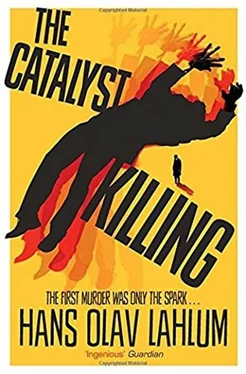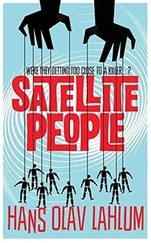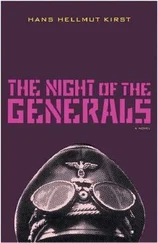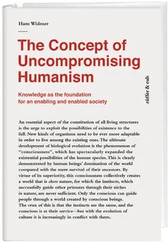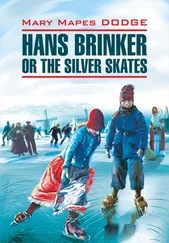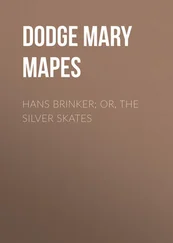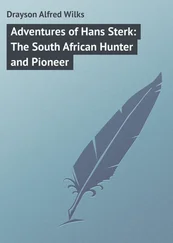As for Marie Morgenstierne, Kristine Larsen had known her since high school. Marie Morgenstierne had met Falko Reinhardt shortly after she started university, and despite their very different social backgrounds, they immediately hit it off. They did seem to fall in love with an unusual passion, Kristine Larsen remarked with a careful little smile. Marie’s parents seemed to think that it was Falko who had led their daughter astray politically. She had, however, been moving rapidly towards socialism for about a year already before she met him, and they had in fact met at a meeting for radical students. Marie’s political views were her own, as far as Kristine Larsen could tell, but she had been very influenced by her boyfriend up until the time he disappeared. He was also a very dominant figure in the group. However, even though she remained in his shadow, Marie Morgenstierne had a far stronger personality than one might first assume, given her gentle nature.
It was a great tragedy that Marie Morgenstierne’s mother had died in the middle of this dramatic period. Marie said that she could not bear to go to her mother’s funeral and had, as far as Kristine knew, had very little contact with her father since. Kristine Larsen had been to Marie Morgenstierne’s childhood home many times when they were teenagers and had met her parents. They were nice and kind in their own way, but ‘terribly reactionary capitalists’, and her father in particular appeared to be very strict. Kristine Larsen had known Marie longer and better than she had Falko and as far as she knew, she had never met his parents.
I had noted that possible motives for the murder might be a new lover, or the rejection of a suitor. I took the opportunity to ask Kristine Larsen if she thought that there was perhaps a new man in Marie Morgenstierne’s life.
Kristine Larsen answered swiftly that she thought it as good as impossible that there had been anyone else either before Falko disappeared, or immediately after. She did, however, add slightly hesitantly that in recent months she had started to wonder if there might be another man in Marie Morgenstierne’s life. The thought had struck her because Marie’s moods had swung markedly back and forth over the course of the summer. One moment there was something brooding about her, the next she was unusually happy and carefree.
Kristine Larsen otherwise agreed with Trond Ibsen that Marie Morgenstierne’s last political meeting had been very undramatic and could not possibly have had anything to do with her death. Kristine had herself walked home alone to her flat. She had asked Marie if she wanted to come back for some coffee or a beer, but Marie had said that she had to be somewhere else. Kristine had been a bit taken aback and then thought that there might be a new man in the picture, but had not wanted to ask. She deeply regretted that now, she added in a quiet voice.
In answer to my final question about Miriam Filtvedt Bentsen’s split with the group, Kristine Larsen said that she had possibly experienced the situation as being less dramatic than the others, but that she had also been taken aback and disappointed when Miriam stood up and left. She had known Miriam since they were around sixteen years old, and still found it hard to imagine that she would do anyone any harm.
This caught my interest and I asked what harm Miriam might have done, other than leave the group.
Kristine Larsen bit her lip and then started to backpedal furiously. She made it clear that she herself did not think that Miriam had done anything wrong, and as far as she knew, no one suspected Miriam of having anything whatsoever to do with Marie Morgenstierne’s death. But I should of course talk to Anders and Trond as well, she said, when I continued to look at her questioningly.
Then, all of a sudden, Kristine Larsen did not want to say anything more. She sat by the table pale, silent and with tears in her eyes. She had been so helpful until this point that I did not feel like pushing her any further, certainly not at the moment. So I did as she said, and drove in the direction of Anders Pettersen’s address.
This group of student activists was starting to interest me more and more. I thought it was more than likely that the group were in some way connected to Marie Morgenstierne’s death and Falko Reinhardt’s disappearance.
Anders Pettersen did not answer his telephone, but did open the door when I rang the doorbell of his flat near Grefsen. He apologized, explaining that he had just come home from a lecture on non-figurative painting at the Academy of Fine Art, and showed me a timetable that undeniably supported what he said.
This seemed reasonable enough, given that his flat was more or less full of self-signed paintings in a very non-figurative style. I had no idea what any of them were supposed to be, so could not make any comment on their artistic merit.
Anders Pettersen was almost the same height as me, had long dark hair, and was of a more stocky build than Trond Ibsen. It was easy to appreciate that under other circumstances he would appear both charismatic and handsome. Now, however, he seemed very affected by the current situation. He repeated several times that Falko’s disappearance in itself was strange, but after all he was someone who provoked powerful emotions in people and it would be easy enough to understand if he had enemies. But it was completely incomprehensible that anyone might think of killing Marie Morgenstierne. He thought it was possible that the intelligence services, or an opposing political group, might want to attack the group. He was increasingly convinced that that was the explanation for Falko Reinhardt’s disappearance. But the murder of Marie Morgenstierne was inexplicable. If it was in some way related to Falko’s disappearance, why two years later? And if the intent was to strike at the group, why Marie Morgenstierne and not himself or Trond Ibsen?
Anders Pettersen seemed to be an intelligent if somewhat unsystematic thinker who had nothing against the sound of his own voice. Given his extremely radical political views and his agitated state of mind, his line of thought was not entirely unreasonable. But I was more interested in the facts.
Merely saying the name Falko Reinhardt for Anders Pettersen proved to be like pressing a button. He had known Falko since class three at school, and had always regarded him as a kind and wise elder brother. Falko was, for him, Norway’s answer to Che Guevara and a possible future leader on a par with Mao. The reason that he had now informally assumed leadership of the group in Falko’s absence was precisely because he had known Falko the longest, and could thus best imagine what he would have thought.
As for the disappearance itself, Anders Pettersen had little to add to what the others had already told me. He had initially refused to believe that Falko was dead in the period following his disappearance, but gradually the doubt had crept in. It seemed increasingly odd that Falko had not contacted him or the group if he was still alive. Falko might be in a secret American prison camp and unable to get out, but it seemed more and more likely that he had simply been killed. And Anders could imagine no satisfactory explanation of how any hypothetical kidnappers or murderers had managed to get Falko out of the cabin without being noticed.
In contrast to his impassioned response to questions about Falko Reinhardt and Marie Morgenstierne, Anders Pettersen’s reaction to my question about the split between the group and Miriam Filtvedt Bentsen was unexpectedly cool. He shook his head thoughtfully and commented that he had been surprised when she got up and left, but that afterwards it had only served to strengthen a suspicion that he had had for some time.
Читать дальше
